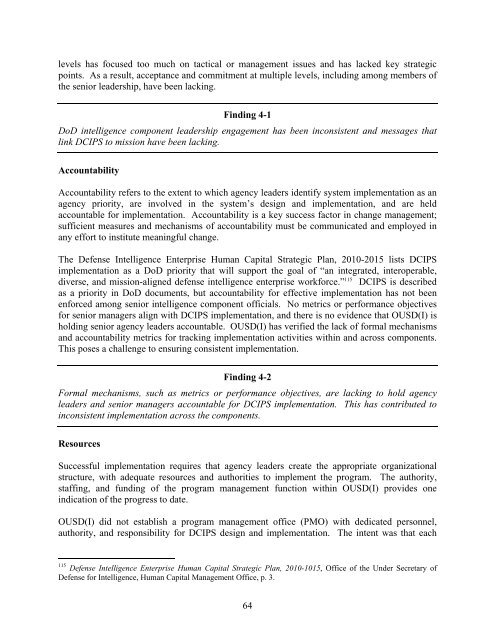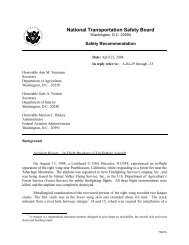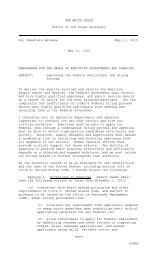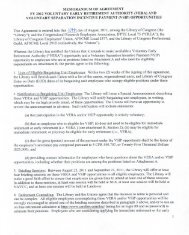Report - Government Executive
Report - Government Executive
Report - Government Executive
You also want an ePaper? Increase the reach of your titles
YUMPU automatically turns print PDFs into web optimized ePapers that Google loves.
levels has focused too much on tactical or management issues and has lacked key strategic<br />
points. As a result, acceptance and commitment at multiple levels, including among members of<br />
the senior leadership, have been lacking.<br />
Finding 4-1<br />
DoD intelligence component leadership engagement has been inconsistent and messages that<br />
link DCIPS to mission have been lacking.<br />
Accountability<br />
Accountability refers to the extent to which agency leaders identify system implementation as an<br />
agency priority, are involved in the system’s design and implementation, and are held<br />
accountable for implementation. Accountability is a key success factor in change management;<br />
sufficient measures and mechanisms of accountability must be communicated and employed in<br />
any effort to institute meaningful change.<br />
The Defense Intelligence Enterprise Human Capital Strategic Plan, 2010-2015 lists DCIPS<br />
implementation as a DoD priority that will support the goal of “an integrated, interoperable,<br />
diverse, and mission-aligned defense intelligence enterprise workforce.” 115 DCIPS is described<br />
as a priority in DoD documents, but accountability for effective implementation has not been<br />
enforced among senior intelligence component officials. No metrics or performance objectives<br />
for senior managers align with DCIPS implementation, and there is no evidence that OUSD(I) is<br />
holding senior agency leaders accountable. OUSD(I) has verified the lack of formal mechanisms<br />
and accountability metrics for tracking implementation activities within and across components.<br />
This poses a challenge to ensuring consistent implementation.<br />
Finding 4-2<br />
Formal mechanisms, such as metrics or performance objectives, are lacking to hold agency<br />
leaders and senior managers accountable for DCIPS implementation. This has contributed to<br />
inconsistent implementation across the components.<br />
Resources<br />
Successful implementation requires that agency leaders create the appropriate organizational<br />
structure, with adequate resources and authorities to implement the program. The authority,<br />
staffing, and funding of the program management function within OUSD(I) provides one<br />
indication of the progress to date.<br />
OUSD(I) did not establish a program management office (PMO) with dedicated personnel,<br />
authority, and responsibility for DCIPS design and implementation. The intent was that each<br />
115 Defense Intelligence Enterprise Human Capital Strategic Plan, 2010-1015, Office of the Under Secretary of<br />
Defense for Intelligence, Human Capital Management Office, p. 3.<br />
64













